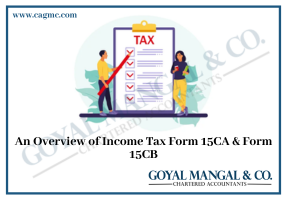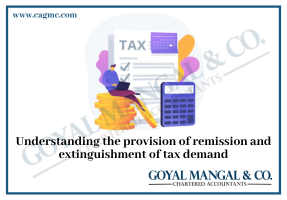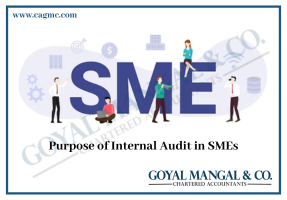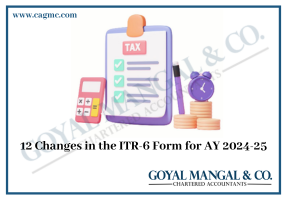 In layman’s language, custom duty is an indirect tax that is applicable to the export and import of goods transported from one country to another.
In layman’s language, custom duty is an indirect tax that is applicable to the export and import of goods transported from one country to another.
Custom in Custom Duty means ancient practice so uniform and persistent in its usage that it becomes a source of law. Since antiquity, the system of levying a tax on imported or exported goods is being followed. In India, the Parliament repealed the colonial laws on customs and substituted them with the Customs Act 1962 and the Customs Tariff Act 1975.
These two pieces of legislation derive constitutional validity from Article 265 and Entry No. 83, List I, Schedule 7 of the Indian Constitution. While Article 265 states, “No tax should be levied or collected except by the authority of law”, Entry No. 83 incorporates the levy of customs duty along with export duty in the Union List. These two when read together, give the Parliament the authority to enact the laws on Customs. This article talks about customs duty on imported goods and the Applicability of Customs Duty on Imported Goods as per Section 12.
|
Table of Contents |
Introduction
In terms of the import or export of goods we often use the term “custom duty” which is payable. Custom duty, in layman’s language, is an indirect tax on the export and import of goods from one country to another. Custom in Custom Duty means ancient practice so uniform and persistent in its usage that it becomes a source of law, indicating that the system of levying a tax on imported or exported goods follows since antiquity.
Applicability of Custom Duty on imported goods under section 12 of the Customs Act, 1962
As per section 12 of the Customs Act, 1962 duties of customs shall be levied as per rates specified under the Customs Tariff Act, 1975 on goods imported into or exported from India. When goods are brought back into India it becomes imported goods from the moment they enter into territorial waters, custom duty become leviable on them. The taxable event will be counted at that point. It has to be determined whether they are exempt from duty or not on that date.
Custom duty refers to the tax applicable on goods when they are transported across international borders. In simple terms, it is the tax that is levied on the import and export of goods. The government uses this duty to raise its revenues, safeguard domestic industries and regulate the movement of goods.
Basic Customs Duty on Imported Goods
Basic custom duty The term territorial waters is sometimes taken in use informally to refer to any area of water over which a sovereign state has jurisdiction. The maritime boundaries and areas are subject to calculation from the baseline.
Baseline: It is the low water line along the coast as officially recognized in the coastal state.
Territorial sea: The Territorial Sea extends seaward up to 12 nautical miles from its baseline. The coastal States have sovereignty and jurisdiction over the territorial sea. These rights extend not only to the surface but also to the seabed, subsoil, and even airspace.
Contiguous zone: This extends seaward up to 24 nautical miles from its baseline. It is an intermediary zone between the territorial sea and the high seas.
Exclusive Economic Zone: It extends seaward up to 200 nautical miles from its baseline.
Section 16(1) of the Customs Act, 1962 does arise only when a proper officer makes an order. Whereas for imports, a taxable event will take into consideration when goods are enters into the territorial water of India. It continues and is complete when they become part of the mass of goods within the country. The taxable event is reached at the time when goods reach the customs barriers and a bill of entry for home consumption is filed.
Thus, when goods are brought from outside the territorial waters of India, they become imported goods and become chargeable to duty up to the moment they are cleared for home consumption. No sooner than they are cleared for home consumption they cease to be imported goods.
Section 12
Section 12 declares that duties of customs shall apply to all goods imported into India. The goods imported shall have gone through valuation under section 14 of the Customs Act. The duty payable shall have to be determined according to the rates specified under section 15 read with the Tariff Act. Every importer of goods is under obligation to make an entry for home consumption or warehousing in the prescribed form. The goods are unloaded at the approved place and under the supervision of the customs officer. This provision is as per section 31 of the Customs Act.
Section 14 of the Customs Act does not lay down when or what goods are chargeable to Customs duty. It only deals with the valuation of the goods imported which are chargeable to customs duty. It does not lay down at what point in time the goods become imported goods. Whether they are chargeable at all to duty; and if so, when they become chargeable must determine with reference to section 12 of the Customs Act.
Section 15 of the Customs Act would become relevant only if goods are chargeable to duty. Section 15 determines the amount of duty payable on imported goods and the rate at which the duty has to be levied.
Import takes place as soon as goods are in the territorial waters of India. As given in section 12 goods are imported into India. Furthermore, once India includes its territorial waters the taxable event occurs.
Conclusion
As per section 12 of the Customs Act import into India, which includes its territorial water chargeability under section 12, a taxable event occurs when the goods enter the territorial water. Import duty would be applicable when goods enter the territorial waters of India. Section 12 of the Customs Act, 1962 levies duties of customs as per rates specified under the Customs Tariff Act, 1975 on goods imported into or exported from India.







